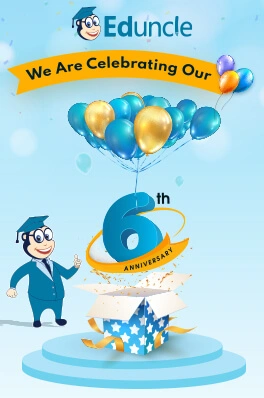Time management is very much important in IIT JAM. The eduncle test series for IIT JAM Mathematical Statistics helped me a lot in this portion. I am very thankful to the test series I bought from eduncle.
Nilanjan Bhowmick AIR 3, CSIR NET (Earth Science)
Shuvadip Das posted an Question
March 26, 2020 • 01:03 am
![]() 30 points
30 points
- UGC NET
- English
How does sidney refute all objections against poetry in his 'an apology for poetry'?
How does Sidney refute all objections against poetry in his 'An Apology for Poetry'?
1 Answer(s)
Answer Now
- 0 Likes
- 1 Comments
- 0 Shares
-
P
T
Do You Want Better RANK in Your Exam?
Start Your Preparations with Eduncle’s FREE Study Material
- Updated Syllabus, Paper Pattern & Full Exam Details
- Sample Theory of Most Important Topic
- Model Test Paper with Detailed Solutions
- Last 5 Years Question Papers & Answers
Sign Up to Download FREE Study Material Worth Rs. 500/-

















Payal Best Answer
The major objections of Stephen gosson against poetry are: (a) “that there being many other more fruitful knowledges, a man might better spend his time in them then in this”; (b) that it is the mother of lies; (c) that it is the nurse of abuse; infecting us with many pestilent desires; and (d) that Plato had rightly banised poets from his ideal republic. Sidney’s replies to these objections: (a) Defending poetry against the first charge, he says that man can’t employ his time more usefully than in poetry. He says that “no learning is so good as that teacheth and moveth to virtue, and that none can both teach virtue, and thereto as much as poetry”. (b) His answer to the second objection that poets are liers is that of all writers under the sun the poet is the least lier. The poet creates something by emotion or imagination against which no charge of lying can be brought. The astronomer, the geometrician, the historian and others, all make false statements. But poet “nothing affirms, and therefore never lieth”, his end being “to tell not what is or what is not, but what should or should not be”. The question of truth or falsehood would arise only when a person insists on telling a fact. The poet does not present fact but fiction embodying truth of an ideal kind. (c) The third objection against poetry that it is the nurse of abuse, “infecting us with many pestilent desires or wits” may be partly justified, but for this a particular poet may be blamed but not poetry. To this charge, Sidney replies that poetry does not abuse man’s wit but it is man’s wit that abuses poetry. All arts and sciences misused had evil effects, but that did not mean that they were less valuable when rightly employed. Abuse of poetry, according to Sidney, is not the problem of poetry but of the poet. (d) The fourth objection that Plato had rightly banished the poets from his ideal republic is also not tenable because Plato sought to banish the amoral poets of his time, and not poetry itself. Plato himself believed that poetry is divinely inspired. In “Ion”, Plato gives high and rightly divine commendation to poetry. His description of the poet as “a light-winged and sacred thing” reveals his attitude to poetry. Sidney concludes, “So as Plato banishing the abuse, not the ‘Thing’, not banishing it, but giving due honour unto it, shall be our patron and not adversary”. In this way, Sidney very strongly defends poetry against the accusations made by Stephen Gosson on poetry.